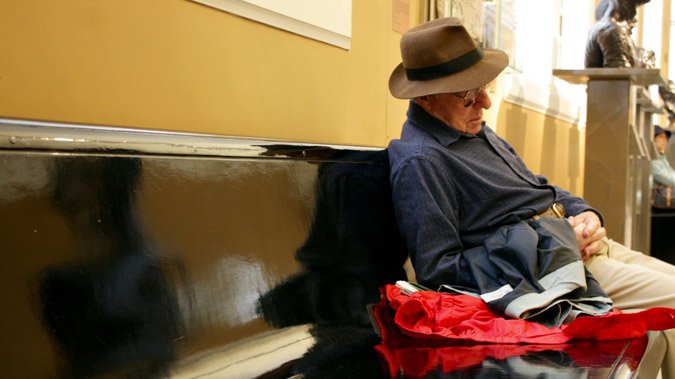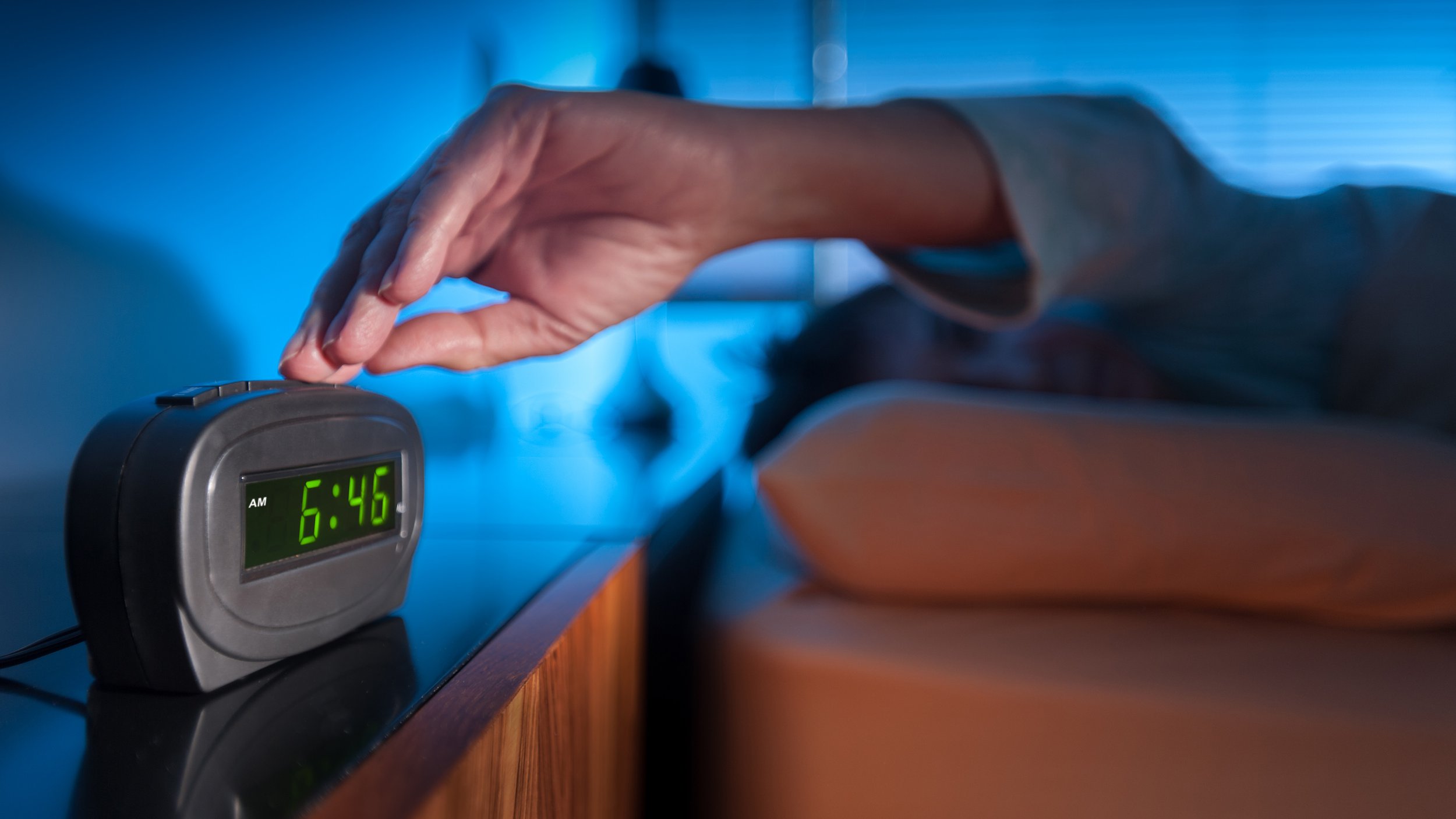Can Animals Survive on Minimal Sleep? For Fruit Flies, the Answer May Be Yes.
Chronic sleep deprivation doesn’t seem to shorten the lives of fruit flies. But that doesn’t mean the same is true for other species.

Looks like this guy took the red-eye in. Image Credit: vasekk, iStock
For us humans, squeezing in some quality shuteye is a crucial part of survival. Not so, it turns out, for the fruit fly.
According to a study published today in the journal Science Advances, chronic sleep deprivation in fruit flies doesn’t seem to cause any serious detriment to longevity. A small percentage of the insects even appear to naturally lead a nearly sleepless existence, with some snoozing for fewer than 15 minutes per day.
Though the research doesn’t have any bearing on human health, the results hint at a tantalizing idea: that some animals can indeed survive on minimal—and highly interrupted—sleep.
“These findings go against the grain of our current notions of how we think sleep should be absolutely vital to survival,” says Jamilla Akhund-Zade, a neuroscientist and fruit fly researcher at Harvard University who was not involved in the study. “The situation is much more complex than we anticipated.”
For animals, there are a handful of clear-cut necessities in life—among them, food and water. But the case with sleep is far murkier. Despite decades of rigorous research, “we’re still trying to figure out what the underlying purpose of sleep actually is,” says Caitlin Gasperetti, a sleep researcher at the University of California, Berkeley who was not involved in the study.
“Clearly sleep is important,” says Christopher Vecsey, who studies sleep behaviors in fruit flies at Skidmore College, but was not involved in the study. Sleep appears to play a critical role in both mental and physical wellbeing, he says, but whether animals deprived of sleep “immediately keel over and die” remains a topic of contention.
To surveil sleep in fruit flies, a team of researchers led by Quentin Geissmann, now a comparative biologist at the University of British Columbia, and Esteban Beckwith, a neuroscientist at Imperial College London, first assessed the insects’ day-to-day habits. When they tracked nearly 1,400 individual insects over a period of four days, it quickly became clear that fruit fly sleep patterns were all over the map.
Although the typical fruit fly slept between five and 10 hours a day, a few rare individuals seemed to get by with just a daily 15-minute siesta. One unusual female slept an average of only four minutes per day, completely of her own volition.
This finding seemed to fly in the face of previous studies that had noted negative impacts of long-term sleep deprivation. But prior experiments conducted in rats or dogs didn’t just keep critters from zonking out; they also subjected the animals to high amounts of stress, often at random intervals, to ensure that they stayed awake. So when their health declined, it wasn’t clear what was responsible—the lack of sleep, or the constant anxiety.
To get around this issue, the researchers designed a contraption to deliberately tinker with the sleep schedules of a new cohort of flies. Each fly was housed in a single vial with plenty of food, while a video monitor recorded its every move. Rather than perturbing the fly throughout the day, the tube rolled only when the insect stopped moving for more than 20 seconds, presumably jostling the groggy fly awake.
The cycle persisted for nearly the entire lifespans of the fruit flies (typically 40 to 50 days in the lab), robbing them of over 95 percent of the sleep they might have otherwise gotten. But when the researchers tracked survival in the sleep-deprived flies, they discovered that the hardship they’d endured had little effect on longevity. There were almost no detectable differences in lifespan between the perturbed flies and their well-rested counterparts, regardless of the duration of their dozing.
These results are “striking,” Akhund-Zade says. But they’re a far cry from proving that sleep is a worthless pursuit—especially outside the context of fruit flies in a lab.
“Our point is not, ‘Sleep is useless,’” Geissmann says. “Our point is that it’s not vital in these conditions, and it’s already quite different than what we assumed.”
The findings also can’t be generalized to animals—especially humans—without further research. “It’s a big leap to go from looking at flies in a controlled experiment to a [human] life,” Gasperetti says.
Even from the fly’s perspective, there are still a couple caveats to keep in mind. While the researchers’ meddling clearly severely disrupted the insects’ natural sleep patterns, other scientists are a little more hesitant to definitively say the flies never napped at all.
Twenty seconds of immobility isn’t long, but it’s still, well, 20 seconds. Quick dips into slumber are something even human bodies do naturally, Gasperetti says—a familiar experience for anyone who’s ever nodded off in a classroom or behind the wheel of a car. When added up, these short periods may have been just enough to keep the flies alive.
And for flies, there may be ways to rest up without halting movement altogether, Vecsey says. The tubes holding the captive flies only rattled them awake after they’d gone completely still, but it’s possible that flies may be snoozing on the go.
It sounds odd, but there’s precedent: Dolphins are able to sleep one brain hemisphere at a time, which keeps them from drowning during periods of rest underwater. Even humans aren’t frozen in place during slumber. “Our definitions for sleep may need to be more flexible, especially across different species,” Vecsey says.
Even so, the body can only rejuvenate so much during brief respites of low-quality slumber. These flies were clearly being stripped of opportunities to hit the hay—and the absence of serious consequences on longevity remains compelling, Akhund-Zade says.

When dolphins sleep, they shut down only one hemisphere of the brain at a time. The other half of the brain stays awake to keep the dolphin breathing, moving, and aware of its environment. Image Credit: Riccardo Cuppini, flickr
Notably, there’s no guarantee that the lack of sleep had zero effect on the flies. While there were pretty negligible effects on the insects’ longevity, the study didn’t test the flies’ cognitive abilities. Across species, learning and memory are both known to take a serious hit from sleep deprivation—and while life in a lab is cushy, a decline in mental acuity would probably have a severe impact on survival in the wild, Akhund-Zade says.
In this vein, Beckwith thinks there might be stratification in animals’ “need” for sleep. “Sleep is not a binary thing, like ‘we are okay’ or we die,” he says. “Maybe there are three parts to it. Maybe we need a certain amount to survive, then some to be functional, then the rest is accessory.”
That theory awaits confirmation. But in the meantime, those vexed by the idea of sleepless insects in their kitchens can rest assured: Their time is better spent catching z’s instead of flies.




